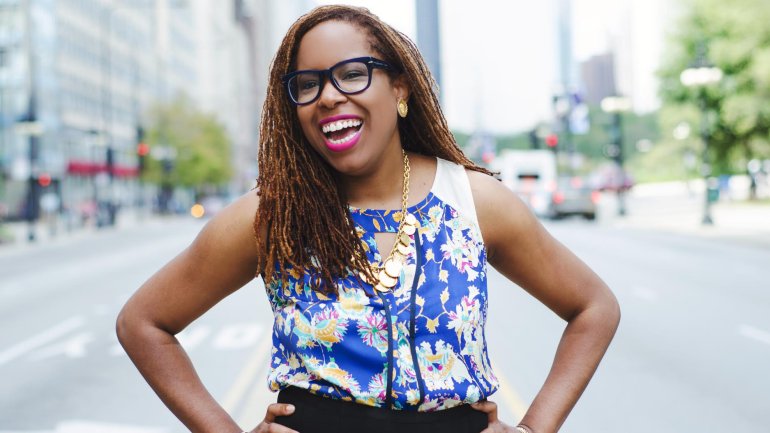Creative Counsel: Legal Advice for Artists
Being an artist isn't just about making art. Anybody wanting to make a living via their creativity has to deal with a slew of side issues: pursuing new opportunities, negotiating deals, and maintaining control of the finished products. These challenges are sometimes difficult for artists to deal with on their own; enter Patrice Perkins' Creative Genius Law. Perkins helps creative professionals with everything from freelance taxes to intellectual property protection. We asked Perkins about the importance of artists having a lawyer on their side.
What sort of services do you offer your artist clients?
I do contract negotiations and copyright and trademark work, and I love developing intellectual property strategies, which is figuring out the best way to protect and maximize the value of the artist's creative work and brand. Most importantly, I work as a partner in their art business – they can call or email me at any time. These aren't transactional relationships for me because I really want to see them sustain long-term. I am rolling out some niche services pretty soon that will be pretty major. I can't share yet, but I can say: stay tuned.
Why is it important for artists – emerging or established – to have legal counsel?
It's most important for reasons relating to ownership of the creative work. I think that a lot of emerging artists don't realize how creative you can get with structuring ownership rights in a contract – you don't necessarily have to give away the entire pie. Attorneys can help them structure a contract in a way that either retains ownership or, at the bare minimum, is artist-friendly in that licensing terms are drafted to work for the artist long-term. Most artists are surprised when I share that the life of a copyright generally lasts the creator's life plus 70 years. Think about how powerful that is, alongside the fact that their work should increase in value during that time. That's long enough to provide for the creator's now-family and a few future generations. My main priority is helping artists capture the value in their work now and retain it in the future, while also protecting their legacy.
How did you decide that offering legal services to creative professionals was what you wanted to do? Did you see this as a community underserved by your profession?
I've always loved creatives, and I jokingly say that I lack my own creative talent so this was my selfish way of easing into the industry. All jokes aside, I do love creatives. In my spare time, I found myself hanging in various creative communities, and no one had attorneys. Either they didn't think lawyers would get them and felt the law would only restrict their creativity, were intimidated by the process, or, heck, just didn't trust us.
I was drawn to serving creatives because I saw a lot of opportunity for their creative work to work harder for them in the long-term, and I thought that working with them on the intellectual property would be key. Our big mission at Creative Genius Law is to move our clients from $0 in intellectual property (or near $0) to at least $1 million in intellectual property. It sounds lofty, and it is, but I'm up to the challenge. We challenge ourselves nearly every day to continue to explore how we can move the needle forward, whether it's in how we negotiate a contract for them or how we develop their intellectual property strategy. I am big on empowerment through legal education. I think that part of this involves the "lawyering," but the other part will happen by arming artists with day-to-day legal skills so they can transact better business on their own.
The gap in the legal industry, for me, was that most firms focused on putting out the fires. I wanted us to focus on using the law to help create new opportunities for our clients and to amplify the opportunities in front of them.
What would you say to artists worried about whether or not they can afford a lawyer, when they already struggle to make ends meet?
Great question. I would say research and develop a relationship now with an attorney who you are interested in having as a long-term advisor. Talk to them about alternative fee options such as flat fee services. If you can't retain them now, don't worry – gather your information on fees and start a budget. I also would say that the right attorney would be an investment in building your business and not a cost. Ultimately, they should help you make more from your creativity. Lastly, don't get in too deep right now. Start on a small concrete project with an attorney, and as you deepen that relationship and see the value, then you can bring them in on more.

